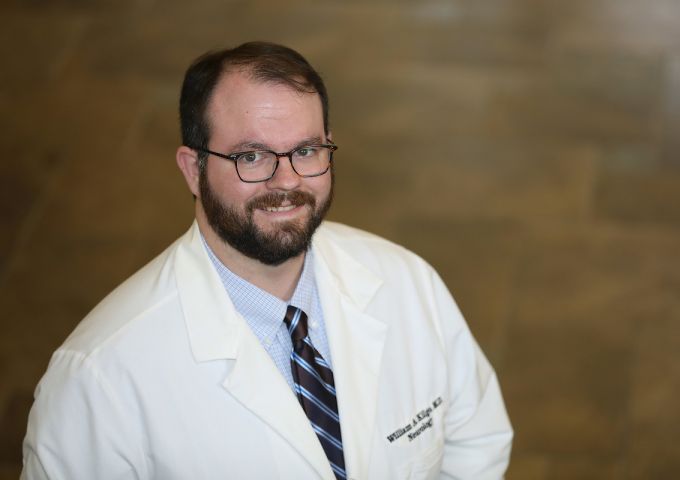
Immune response worsens outcomes for African-American patients with ovarian cancer
African-American patients with advanced ovarian cancer were found to have a pre-existing immune response linked to worse survival rates compared with their white counterparts, according to research led by Dr. Rodney P. Rocconi, a gynecologic oncologist and interim director of the USA Health Mitchell Cancer Institute.
African-American patients with advanced ovarian cancer were found to have a pre-existing immune response linked to worse survival rates compared with their white counterparts, according to research led by Dr. Rodney P. Rocconi, a gynecologic oncologist and interim director of the USA Health Mitchell Cancer Institute.
In the study, researchers employed RNA gene sequencing to examine the immune responses of 94 ovarian cancer patients from across the U.S. They identified five genes that were overexpressed in African-American patients and were associated with the IDO immune pathway. The overexpression led to worse survivals, the study found.
“Our research suggests that there may be an opportunity to selectively use immunotherapy targeted to the IDO pathway to potentially close the racial disparity gap in ovarian cancer,” Rocconi said.
The study was one of two presentations on gynecologic cancers and race given by Rocconi on March 18, 2019, at the Society of Gynecologic Oncology’s 50th Annual Meeting on Women’s Cancer in Honolulu.
In the second study, Rocconi found lower enrollment among African-American patients in Phase 1 gynecologic oncology clinical trials compared with their white counterparts or other races. Researchers analyzed 357 clinical trials involving 9,492 gynecologic cancer patients between 1985 and 2018. They found that African-American enrollment was 19 times lower than expected for ovarian trials, 22 times lower for endometrial trials and 54 times lower for cervical trials on an age-adjusted basis.
Clinical trials are research studies designed to test new therapies for cancer and other diseases.
“By not having equal inclusion of African-American patients on Phase 1 clinical trials, we are thereby self-selecting cancer therapies that are known to work mainly in the majority population,” Rocconi said. “Thus, we must develop strategies to enhance minority participation in trials to eliminate the disparity gap.”
USA Health Mitchell Cancer Institute
As the region's only academic cancer center, USA Health Mitchell Cancer Institute combines NIH-funded scientific research with comprehensive cancer care serving communities across southern Alabama, southeast Mississippi and portions of northwest Florida.




